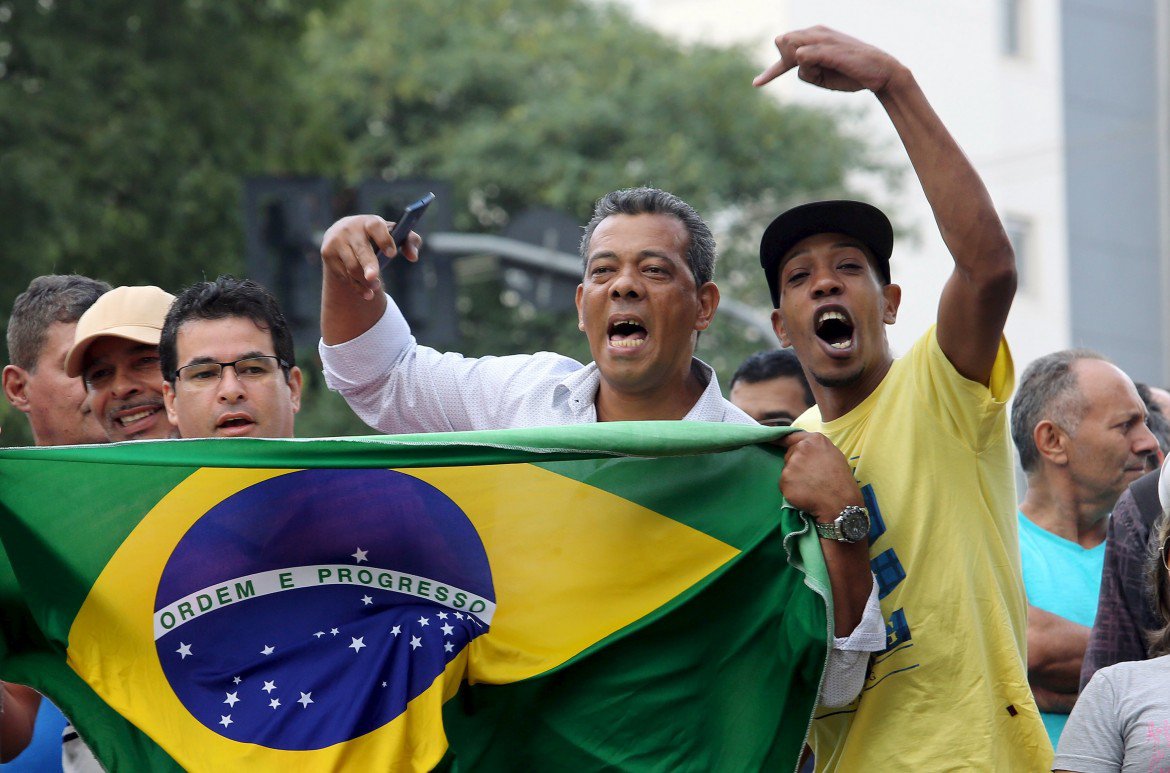Analysis
Politics, corruption and Lula da Silva
Former Brazilian President Luis Inácio Lula da Silva was roped into a massive corruption investigation on Friday. But in Brazil, even justice is politics.

Friday was a bad morning for the former president of Brazil. Luis Inácio Lula da Silva was hauled away like a criminal at dawn and released after hours of questioning at the Congonhas airport. Meanwhile, federal police raided his home, then moved on to the headquarters of his foundation, Instituto Lula, and the houses of people close to the former union leader. Even two of his sons were arrested.
The raid and interrogation, ordered by the federal judge Sérgio Moro at the request of the public prosecutor, is part of “Operation Carwash,” a massive investigation into a web of bribes, billionaires and rigged government contracts. At the center is the state oil company Petrobras, but it involves about 20 other companies, including Odebrecht, the largest manufacturer in Latin America, and 50 politicians from different sides. The company’s chief executive, Marcelo Odebrecht, is in jail. And on Friday, police raided several offices that bear his name.
Prosecutors believe Lula, as he’s known, pocketed dirty money and invested it in real estate through shell companies, as well as financing his campaign and his Workers’ Party (PT) with ill-gotten money. He has received “many favors,” prosecutors say, from companies indicted under the Operation Carwash and negotiated votes for PT. “There were many favors that are difficult to quantify,” according to the magistrate. “But the estimated value is around 30 million reales [$8 million], including conferences and donations that major manufacturers made available.” Lula denies these accusations and also denies that his foundation was involved.
Investigators say Lula’s position was worsened by statements made by Delcidio Amaral, a turncoat senator from his own party and whistleblower in the Petrobras scandal. According to his statements, the former president had tried to buy witnesses to avoid being dragged into the fray. Amaral’s statements were made under a Brazilian law that allows for the reduction of sentences if the testimony supports the magistrate’s hypothesis.
Lula’s detention was entirely political, slamming PT politicians on the front page of powerful, anti-government newspapers. Conservative forces had trouble swallowing a second — narrow — victory by Lula’s heir, President Dilma Rousseff. And with polls and doomsday predictions, opponents from all sides have tried to unseat her: both financially and politically, by pressing on the weak equilibrium she holds at the institutional level.
South America’s politics have changed. The conservatives won in Argentina, and the Venezuelan right, always very well received in the Brazilian Senate, announced that soon they will propose a recall referendum against Venezuelan President Nicolas Maduro. In Mercosur, after the handover of Uruguayan President Pepe Mujica to the more moderate Tabaré Vazquez, Venezuela and Bolivia are the only opponents to a free trade agreement with Europe, which would follow the same outline of the larger Trans-Pacific Agreement, created by the U.S.
There are plenty of Brazilian politicians who cannot afford to throw the first stone, like the President of the Chamber of Deputies, Eduardo Cunha, who is in the front row calling for Rousseff’s impeachment. The Supreme Court (the only entity that can adjudicate cases involving representatives) took up a case in which Cunha is accused of accepting $5 million in bribes, between 2006 and 2012, in exchange for Petrobras oil tanker construction contracts.
Cunha, who controls the powerful evangelical churches, denies any wrongdoing and may get away with it, as has happened before on similar occasions. But the court’s decision could force him to leave Congress, annulling his efforts to bring down Rousseff. Cunha wants to bring her to trial for alleged tax irregularities committed last year. The impeachment request argues that the president rigged the fiscal deficit and spent more than what was allowed during 2014. At the same time, the document accuses the government of being behind the Petrobras corruption scandal.
Meanwhile, the Chamber’s ethics committee opened an investigation against Cunha to determine whether he should be stripped of his job for lying during a parliamentary hearing. Cunha had denied having accounts abroad, but the opposite was established by Swiss experts.
On Friday, after Lula’s arrest, Rousseff called an emergency meeting and denounced the political use of judicial investigations and “leaks that do not contribute to the country’s stability.” She asked for the full disclosure of any accusations against him. Rousseff’s opponent in the last presidential elections, conservative Aécio Neves, replied that Rousseff should resign for making such a statement. The PT urged militants to mobilize to support Lula and to reject “the media spectacle mounted against him and his family.”
“It is time to reflect, to mobilize and to watch all the party’s locations,” said PT president Rui Falcao. On Friday a confrontation between supporters and opponents in front of Lula’s house in Sao Paulo left some injured, and the police had to intervene. The PT militants chanted “Lula, warrior of the Brazilian people” to support the former assembly line worker who ruled the country between 2003 and 2010. In response, the parties of the right have called for a large demonstration on March 13 to demand Rousseff’s impeachment.
Originally published at http://ilmanifesto.info/corruzione-fermato-lula-da-silva/ on 2016-03-05
